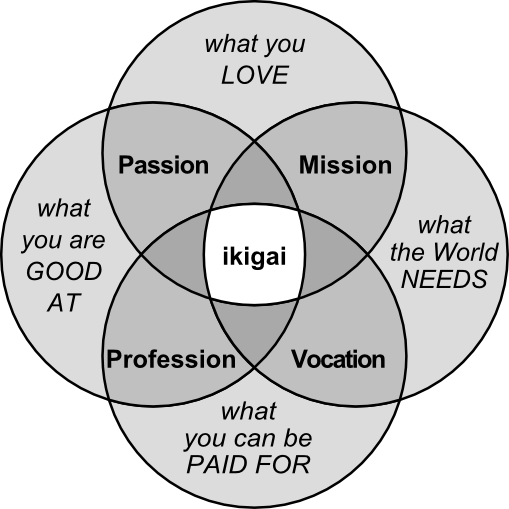Hi Steemians! Hope that you guys are having a nice Tuesday! Today, I wanted to discuss the doctorate of philosophy a.k.a (Ph.D). As we all know, the Ph.D is the highest academic degree that can be awarded by Universities. It is a very prestigious award, although it is definitely not necessary depending on your future goals and what you want to do with it. Sometimes, some modern parents want to push their children into doing a Ph.D just for the prestige and that might not be a great idea for many reasons. We will talk about pros and cons of doing a Ph.D in a future post but today I wanted to talk about some rules that are necessary to be successful in a Ph.D program that I called "The 6 golden rules to succeed in your Ph.D". Now just to clarify, I am a Ph.D student myself and I study Artificial Intelligence (AI), so I have a little bit of experience on this subject and might be slightly biased at the same time because of that. Hope that you guys will enjoy the reading! :)
I. Follow your Ikigai
Ikigai can be defined as a Japanese idea that means "a reason for being" [1]. It is something that is embedded into all of us, and sometimes without us knowing it. Ikigai basically says the following: "search what you love, which is something that the world needs, which is something that you are good at and of course which is something that you can be paid for and as a result, you will be able to combine your passion, your mission, your profession and your vocation, hence your Ikigai. It requires a profound understanding of self.

My point here is that when you do a Ph.D you have to make sure that it is something that you fully enjoy, that can truly benefit your surrounding and that you can be really paid good money for. It really has to be that, therefore nobody doing a Ph.D should be influenced by a topic suggested by his advisor just because that advisor anticipated fame and gains for his lab (I will expand about that issue in the next section).
II. Choose your advisor/mentor wisely
Believe it or not, this is perhaps the most important section of this post, as I would definitely assume that people that choose to do a Ph.D are already self motivated and know what they want to do with it. Choosing your advisor is key to do a successful Ph.D and to not live in hell for 4-5 years, and I really can't emphasize this enough!!!! It is quite sad but there are some Ph.D advisors that only care about the fame of their lab (sometimes to the point of forgetting what real science is about) and those definitely don't care about their students. Before choosing his advisor, the student has to make sure that his interests truly align with the advisor's interests. The student has to really make sure that the advisor cares about his students getting a job afterwards and not about the fame of his lab.

Let me give you guys a concrete example. At the very beginning of my Ph.D, I made the mistake of choosing an advisor that only cared about the fame of his lab and did not care about his students. He would drag me from one project to another and to another one just so that he could get as much productivity as possible from his lab!! That was quite evil and he would make me work non-stop just so that he could show off at his conferences about how productive his lab is!!! He never told anyone in the lab about relevant topics that could get them a job (except for once but that was very brief). At some point I decided to get a new advisor and it was a completely opposite experience!!! My new advisor clearly taught me what would get me a job and he clearly cares that I do something that I like. Not to mention that he is much more open-minded than my previous advisor so it is a lot easier to talk to him.
III. Constantly follow what Ph.D, faculty and entrepreneur leaders are bringing to the field
Usually when it comes to knowledge in a field (whatever field) it is very important to constantly keep an eye on what is new. Everything that we learn today gets eventually expired tomorrow so it is very important to read what leaders in the field are bringing to the table. Like the revolutionary visionary Gunter Pauli (The Blue economy) says, every diploma has an expiration date.
Reading this article I am ashamed to have been trained as an economist. However, I do recognize that each diploma has an expiration date. Mine has definitely expired! [2] Gunter Pauli, Twitter, November 2017
As I am in the field on A.I, I personally read a lot of blogs from advanced people in the field such as Andrej Kaparthy, Dr. Fei Fei Li, Carlos E Perez, Siraj Raval, Aurelien Geron just to name a few. It is also of high importance to keep an eye on the recently relevant papers that get published.

IV. Apply "the rule of the thirds"
In the past, especially during the "Renaissance" era, advanced civilizations such as in Greece had a specific method for learning called "The rule of the thirds". This was reminded by the famous French visionary Idriss Aberkane in his book "Liberez votre cerveau". The rule of the thirds basically means that as a student you have to spend 1/3 of your time learning from your mentor, 1/3 of your time learning by yourself and 1/3 of your time teaching to other students what you have learned. According to Idriss Aberkane, this is a very efficient way of learning ergonomically for your brain because you learn something knowing that you have to teach it eventually to somebody else. This changes the rules of the game.

V. Make sure that you have a stable funding
This part is one of the most important sections as well. It is important for a doctorate student to get clarifications about his funding situation very early, otherwise this might lead to some waste of time. I have met students that are really stressed during their Ph.D because they lack funding and thus instead of enjoying what they are doing they have to spend countless of hours applying for scholarships and so on. Not to mention the emotional damage that this may do to a person.

VI. Write frequently about your Ph.D
I have noticed that successful people in Ph.D programs write frequently about their experiences during their Ph.D. They write about their lab experiments, their hypothesis, their frustrations or their joys regarding aspects of what they have learned and so on. Those people write in labbooks, diaries or blogs and this is very helpful especially for other people that are trying to succeed in their Ph.D. There is a famous say which is "Don't reinvent the wheel". This is especially true in Ph.D as it is not helpful to redo something that already works or to make the same mistakes that people have made in the past. This is a precious time saver.

Conclusions
In this post, we reviewed the 6 golden rules to succeed in a Ph.D program. In a future post, we will view the pros and cons of doing a Ph.D (why or why not do a Ph.D).
juv79505 sincerely thank you for reading this article. Please feel free to comment below in case you have ideas, questions, suggestions or simply want to criticize this article. Also, note that all pictures used in this article were extracted from the google section “pictures labeled for commercial reuse”. Stay tuned for more articles on health, environment, artificial intelligence, technology, geography, history, sports or video games.
References
[1] https://en.wikipedia.org/wiki/Ikigai
[2] https://twitter.com/MyBlueEconomy/status/929666994781278208
Pictures
Picture 1 was taken from https://goo.gl/hJDQBb
Picture 2 was taken from https://goo.gl/NHpDxe
Picture 3 was taken from https://goo.gl/5s4gp7
Picture 4 was taken from https://goo.gl/YWQ7Fv
Picture 5 was taken from https://goo.gl/jEy2vi
Picture 6 was taken from https://goo.gl/a4ZH5B
This is an awesome piece! I don't think I'll pursue a masters or Ph.D, but I have considered a masters. I do appreciate your graphic on how to decide what to do, and the part on the rule of thirds is sound advice as well! I always enjoy reading your posts and learn a little something :)
Downvoting a post can decrease pending rewards and make it less visible. Common reasons:
Submit
@falseyedols thank you I appreciate it! Masters is definitely a very good diploma. In what area? Yeah I try to spend some time at finding the graphic that will better convey my message, looks like I didn't fail :). I found the rule of the third pretty powerful, it's amazing how history can make us much more effective especially in education, science, economics etc ... I definitely enjoy reading your posts too my friend!
Downvoting a post can decrease pending rewards and make it less visible. Common reasons:
Submit
awesome advice whether one is pursuing a Ph.D or not...this can be applied to all walks of life. well done...voted & shared ;')
Downvoting a post can decrease pending rewards and make it less visible. Common reasons:
Submit
@inksanity thank you I am very glad that you enjoyed reading this post! :) And yes you are right I think also that this can be applied to all walks of life. Thank you again! :)
Downvoting a post can decrease pending rewards and make it less visible. Common reasons:
Submit
Congratulations! This post has been upvoted from the communal account, @minnowsupport, by juv79505 from the Minnow Support Project. It's a witness project run by aggroed, ausbitbank, teamsteem, theprophet0, someguy123, neoxian, followbtcnews, and netuoso. The goal is to help Steemit grow by supporting Minnows. Please find us at the Peace, Abundance, and Liberty Network (PALnet) Discord Channel. It's a completely public and open space to all members of the Steemit community who voluntarily choose to be there.
If you would like to delegate to the Minnow Support Project you can do so by clicking on the following links: 50SP, 100SP, 250SP, 500SP, 1000SP, 5000SP.
Be sure to leave at least 50SP undelegated on your account.
Downvoting a post can decrease pending rewards and make it less visible. Common reasons:
Submit
Thank you I appreciate it!
Downvoting a post can decrease pending rewards and make it less visible. Common reasons:
Submit
I’m not in a position to pursue a PhD, but there is sage advice in here regardless. I especially like your inclusion and depiction of ikigai as the starting point. That beautifully frames a wise approach to any professional endeavor. Thanks for the great post!
Downvoting a post can decrease pending rewards and make it less visible. Common reasons:
Submit
Thank you!!! Glad you liked my post! Yeah I too think that the concept of Ikigai is very powerful. You can apply it pretty much everywhere.
Downvoting a post can decrease pending rewards and make it less visible. Common reasons:
Submit